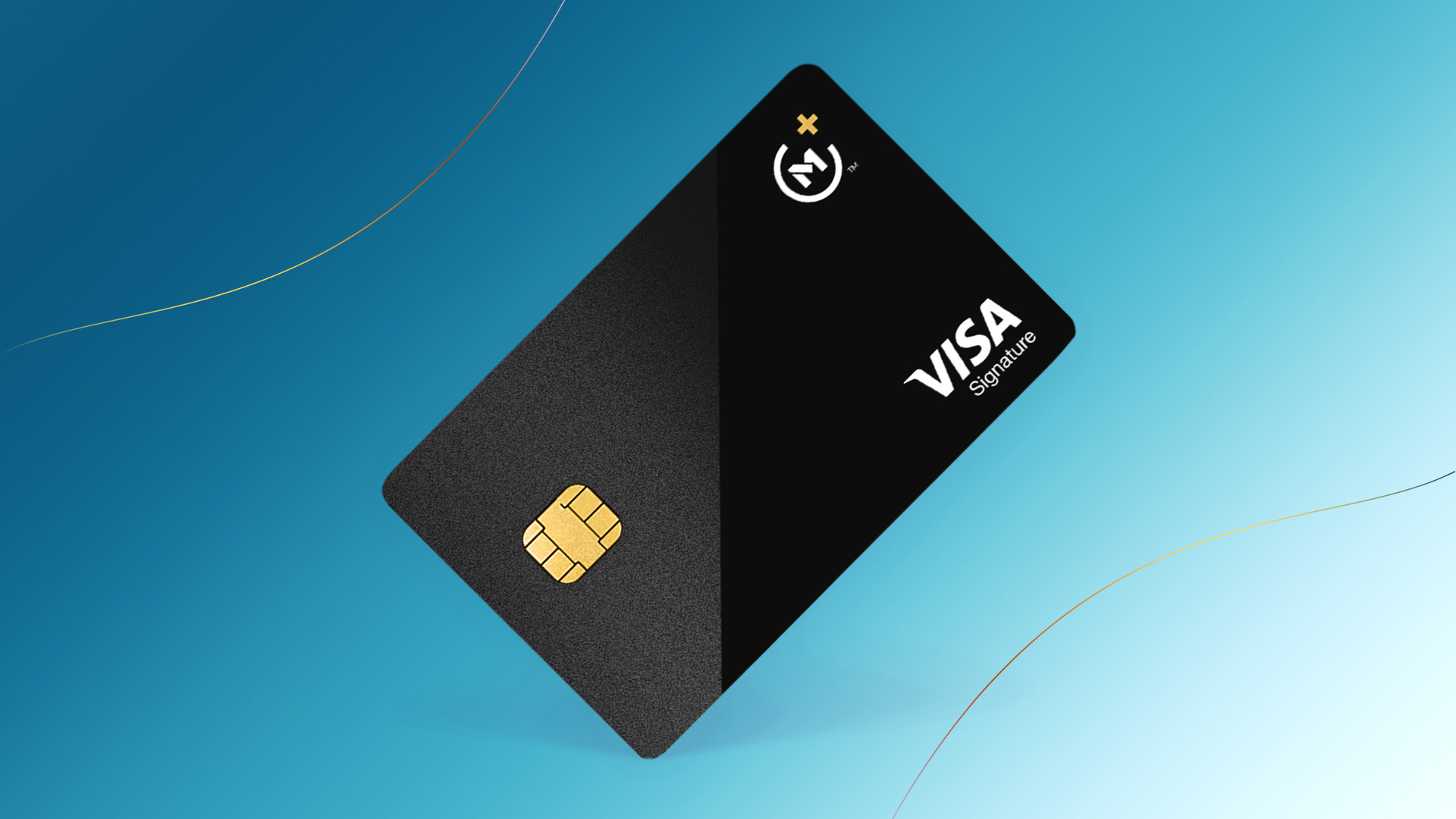The Role of Credit Cards in the Digital Economy: Trends and Innovations

Understanding the Role of Credit Cards in Modern Finance
In a world where immediacy is paramount, credit cards have transformed the way we manage our finances. Whether you’re picking up a coffee in the morning or booking a vacation online, the ease of pulling out a credit card makes transactions seamless. This technology puts the power of choice directly in the hands of the consumer, allowing for not just quick purchases but also strategic financial management. The implications of this are profound, impacting everything from consumer behavior to economic trends.
One of the most notable advancements has been in the realm of contactless payments. With just a wave of your card, you can complete a transaction in mere seconds, eliminating long checkout lines and fostering a shopping experience that is as efficient as it is pleasant. For instance, stores like Starbucks have fully embraced this technology, enabling customers to pay and earn rewards all in one smooth motion. Such innovations do not just enhance convenience; they redefine expectations, encouraging consumers to prioritize speed along with safety in their purchasing processes.
In addition, many credit cards now come equipped with rewards and cashback programs that incentivize smart spending. For instance, cash back on groceries can amount to significant savings over time, especially for families who regularly visit the supermarket. By understanding and utilizing these benefits, consumers can align their purchases with their financial goals—whether that means saving for a major purchase, paying off debt, or even treating themselves once in a while without the guilt. These tools empower individuals, offering them a way to turn everyday expenses into opportunities for savings and rewards.
Moreover, the evolution of enhanced security features cannot be overlooked. With identity theft becoming increasingly common, credit card providers are investing heavily in innovative fraud detection mechanisms. Technologies such as biometric authentication, which may use fingerprints or facial recognition, add an extra layer of protection. This is particularly significant in the United States, where consumers can feel more secure knowing that their financial information is safeguarded against potential threats.
As these trends continue to grow and develop, we are moving towards a more financially literate society. The focus on understanding these financial tools allows individuals to take control of their spending habits, ultimately leading to smarter decision-making that aligns with their values and aspirations. Embracing the potential of credit cards can not only simplify your daily purchases but also help you build a robust financial future. Take charge of your finances today, and explore the opportunities that credit cards can offer. Your wallet—and your future self—will thank you.
DIVE DEEPER: Click here to discover how gamification can engage clients and teams
The Evolution of Credit Cards: Bridging Tradition and Technology
The landscape of personal finance is continuously evolving, with credit cards sitting at the forefront of this transformation. Not only do these financial tools enable immediate purchasing power, but they also foster a shift toward a more connected and digital economy. As we explore the trends and innovations surrounding credit cards, it becomes clear that they are not merely transactional instruments; rather, they are integral to shaping consumer behavior and financial literacy.
One of the most striking trends is the rise of mobile wallets, which integrate seamlessly with credit cards to enhance the payment experience. Technology giants like Apple, Google, and Samsung have developed platforms allowing users to store their credit card information securely on their smartphones. This not only simplifies transactions but also encourages a connection between the consumer and their spending habits. As the mobile wallet ecosystem grows, more consumers are opting for digital wallets over physical cards, leading to significant changes in how transactions are conducted.
To better understand these advancements, consider the following trends that represent the current transformation in the credit card industry:
- Integration with Personal Finance Apps: Many credit card providers are now partnering with personal finance applications to help users track their spending habits more effectively. This means that consumers can receive personalized insights into their purchasing patterns and adjust their budgets accordingly.
- Enhanced User Experience: With the increased utilization of artificial intelligence and machine learning, credit card companies are improving user interfaces and customer service. Chatbots, for example, provide round-the-clock assistance for account inquiries, making financial management much more accessible.
- Eco-Friendly Initiatives: Sustainability is becoming a key concern among consumers. As a result, credit card issuers are introducing cards made from recycled materials and offering rewards for environmentally-friendly purchases, appealing to a growing demographic prioritizing sustainability.
These developments highlight the importance of convenience and empowerment in today’s financial climate. Consumers are no longer just passive players in the financial system; they are taking an active role by leveraging technology to inform their choices and align their finances with their personal values. As credit cards continue to incorporate innovative technologies, they will revolutionize not only how purchases are made but also how individuals perceive and manage their spending.
In this new digital era, the emphasis on conscious financial practices is more relevant than ever. Armed with tools that promote transparency and aid in informed decision-making, consumers can navigate the complexities of money management with increased confidence. The digital economy invites everyone to reframe their relationship with credit cards, transforming them from mere means of payment into powerful allies in achieving financial goals.
DIVE DEEPER: Click here to discover more about affiliate marketing
Empowering Consumers: The Impact of Credit Cards on Financial Decisions
As the digital economy continues to flourish, credit cards have become more than just payment tools; they are catalysts for empowering consumers to take control of their financial destinies. The innovations surrounding credit cards not only enhance usability but also promote savvy financial management, encouraging users to make informed choices for a healthier financial future.
One notable advancement is the introduction of dynamic rewards programs. Credit card companies are now offering rewards schemes that adapt to consumers’ spending patterns, providing rebates on categories they frequently engage with, such as travel, groceries, or gas. This tailored approach not only incentivizes responsible spending but also enriches consumer engagement. Imagine earning points for a coffee purchase that you already make daily, or receiving cashback on travel expenses for an adventurous getaway—such personalized incentives are redefining the credit card landscape.
Interest-free financing options are another trend gaining traction, offering consumers flexibility and financial relief. Many credit card providers are introducing promotional periods where users can make purchases without incurring interest for a certain timeframe. This gives individuals the opportunity to manage larger expenses without the immediate pressure of accruing interest, allowing for thoughtful financial planning. For instance, whether it’s a well-deserved vacation or unexpected medical bills, these options empower consumers to make decisive financial choices.
Moreover, technology has enabled the emergence of contactless payment methods, which are becoming increasingly popular across the United States. Credit cards equipped with NFC (near-field communication) technology allow consumers to tap and pay quickly, enhancing the shopping experience while streamlining checkouts. This innovation is particularly beneficial during hectic shopping seasons or at busy venues, where time is of the essence. The speed and convenience of contactless payments not only make transactions more efficient but also subtly influence consumer behavior, encouraging impulse decisions and spontaneous purchases.
In addition to tangible rewards, credit cards now also prioritize security and fraud prevention. With advanced technologies like biometric authentication and real-time transaction alerts, consumers can shop with confidence, knowing that their financial information is safeguarded against fraud. As people grow more conscious of identity theft and cybercrime, these innovations serve as reassuring measures that promote trust in digital transactions. Enhanced security features empower consumers to embrace their options without fear, reinforcing a healthier relationship with credit.
Finally, many credit card issuers are taking steps to create a community of financial literacy. By offering educational resources, workshops, and webinars, these companies are not merely illuminating the benefits of their products but are actively engaging customers in expanding their financial knowledge. As consumers become more educated about credit scores, loan processes, and responsible credit card usage, they build confidence in their financial decisions and are more likely to adopt healthy spending habits.
These trends indicate that the role of credit cards in the digital economy extends far beyond mere transactions. They are evolving into tools that empower consumers, equipping them with the knowledge, support, and resources they need to navigate an increasingly complex financial landscape. As consumers forge a new path in their financial journeys, they will discover that credit cards can serve as allies in not only achieving immediate goals but also fostering long-term financial wellness.
DIVE DEEPER: Click here to discover how to build an effective sales funnel
Conclusion: Embracing the Future of Financial Freedom
In today’s rapidly evolving digital economy, credit cards have transformed into powerful instruments for financial empowerment, enabling consumers to navigate their financial paths with greater confidence and knowledge. Through dynamic rewards programs, flexible financing options, and cutting-edge technology such as contactless payments, credit cards adapt to the needs of the modern consumer, reflecting spending habits and personal preferences. These innovations foster a proactive approach to managing finances, encouraging responsible decisions that lead to enhanced financial wellness.
Moreover, the heightened focus on security and fraud prevention assures consumers that their financial information is protected, allowing them to embrace the digital marketplace without trepidation. As credit card issuers promote financial literacy through educational initiatives, they cultivate a community of informed consumers who are empowered to understand their options fully, ensuring that their journey toward financial health is supported by knowledge and resources.
As we look ahead, the role of credit cards will likely continue to expand beyond transactional purposes. They are becoming essential partners in individuals’ financial journeys, inspiring a new generation to take charge of their financial destinies. By embracing these innovations and trends, consumers not only enhance their purchasing power but also contribute to a thriving digital economy. The future is bright; with each financial decision made more thoughtfully, we inch closer to achieving a more financially literate, secure, and responsible society.



